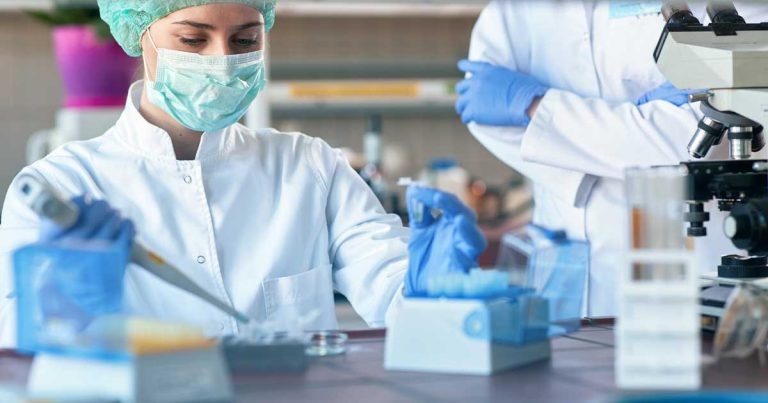11 Jul 2023
Zoetis said one health and sustainability pledges were key to its ongoing work, as was work on health projects in partnership with vet schools and other research bodies.

Image: © luckybusiness / Adobe Stock
Animal health’s leading player said it was committed to continuing a strategy of innovations that had veterinary surgeons at its heart.
Zoetis said one health and sustainability pledges were key to its ongoing work, as was work on health projects in partnership with vet schools and other research bodies.
The news came as the world’s number one animal health company unveiled new products in what it calls its “continuum of care” – providing solutions that predict, prevent, detect and treat disease to enhance livestock production.
The UN estimates the world’s population could top 10 billion by 2050, putting more demand on food production and supply, while issues including COVID-19 and climate change have put one health approaches and sustainability front and centre.
The company said it aspired to provide products and services that helped productive and sustainable livestock farms to preserve animal health and welfare.
Speaking at a two-day event for Europe’s animal sector press at the company’s international headquarters south of Dublin, Jamie Brannan – Zoetis executive vice-president and president, international operations and aquaculture – said: “We have a very clear vision in Zoetis in terms of how we want to lead our industry and how we develop animal health.
“We’ve got to try to feed an extra two billion people in the coming years, and we know there is an increased need for safe, high-quality animal protein.”
Zoetis, spun off from Pfizer 10 years ago, has 70 years’ experience and covers medicines, vaccines, diagnostics, genetics, biodevices and precision animal health across eight core species.
With revenue of US$8 billion (£6 billion), it has a presence in 100 countries, has 29 sites across the globe, and employs 500 at its headquarters in Cherrywood and three manufacturing sites in the republic.
Mr Brannan said the company would continue to invest in research and development (R&D), and develop its portfolio to meet demands for efficient and sustainable livestock production.
He said: “To continue to grow ahead of the market in livestock, we need to think about how we innovate. We continue to invest heavily. We have 1,400 people working in R&D across the globe, and a big number of these people are focused in on livestock.
“For us, it is key that our R&D teams continually align to these new trends, but also to look at where we have strength in our portfolio and how we can develop on those – whether that is vaccines, genetics and some of our base business as well.”
He added: “Our approach is to innovate across the continuum of care, so it is not about just focusing on one area. So, how can we predict what is happening in the market? How do we support producers to predict and to manage their herds? And in terms of genetics, that is a big part.
“We also look at how we detect and how we think about diagnosis. And thinking about how our diagnostics portfolio can be developed, be innovative and to support farmers, as well as pet owners, with the veterinarian at the heart of what we do.”
During the press conference, Zoetis unveiled Protivity, a European first modified live vaccine to protect cattle against Mycoplasma bovis – the organism that can lead to bovine respiratory disease, mastitis and arthritis, and causes major economic and health issues in dairy cattle.
The vaccine is already available in the US and France, and it is expected to launch soon in the UK
Stefanie Bernheim, from Zoetis France’s ruminants team, said: “It is the first and only commercially available modified live virulent M bovis vaccine with an efficacy proven in very strong and robust studies.
“It is effective for vaccination of healthy calves one week of age. It would be used under the supervision of a veterinarian and in herds where M bovis has been identified. It is a very simple and classical regimen of vaccination, it is two doses, SC route, 21 days apart.”
CircoMax – the first porcine circovirus type two vaccine to include two genotypes (a and b) – has also been launched.
The previous day, leaders at University College Dublin (UCD) outlined some of their work – including in partnership with Zoetis and the University of California, Davis – into sustainable livestock production.
Projects have covered antimicrobial resistance, zoonoses, food safety and vaccines, with current work at the UCD’s Lyons Farm studying optimum grass types for dairy cattle.
Speaking in one of the presentations, UCD president Orla Feely said: “We are strongly research active; strongly ambitious in the research that we deliver. We have a very strong research presence in the area of one health, and we have brought our disciplines together within our college of health and agricultural sciences, motivated by the one health agenda.”
During the press conference, Eric Morgan – of the Queen’s University Belfast Institute for Global Food Security School of Biological Sciences – outlined work being carried out in partnership with Zoetis with funding from UK Research and Innovation.
The project – Co-Adapt – will explore the management of endemic coinfections in ruminant livestock under climate change.